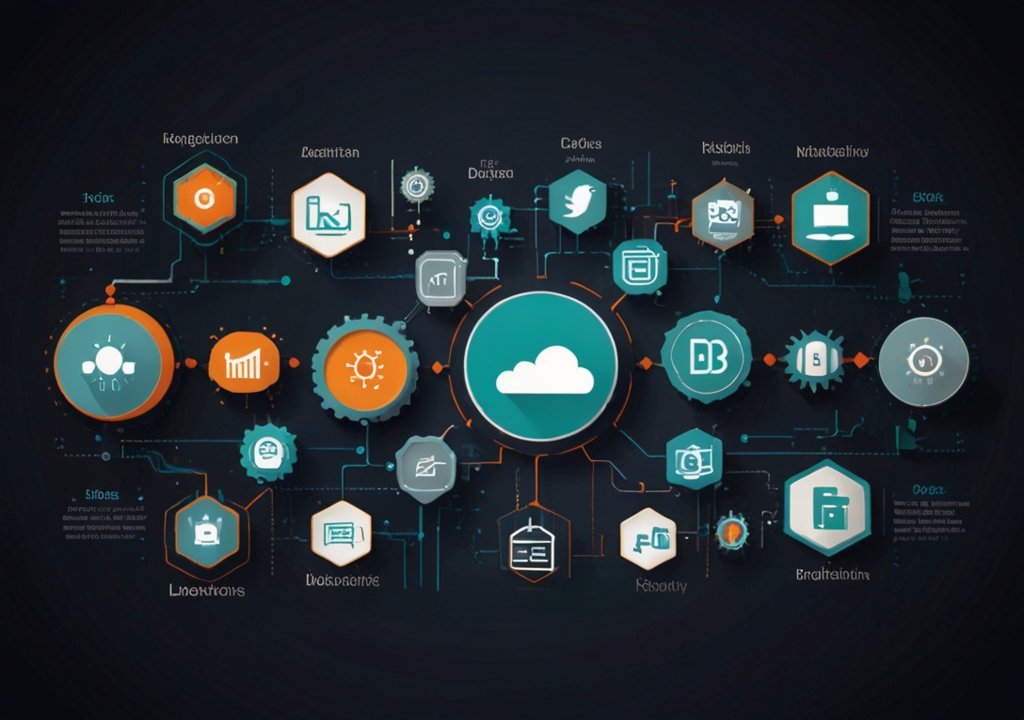Key Takeaways
- Conversation intelligence solutions empower sales teams to analyze and refine every customer interaction for better results.
- Modern platforms offer real-time feedback, data-driven analytics, and actionable recommendations to foster effective coaching and ongoing development.
- Automation minimizes tedious manual tasks, freeing sales reps for more meaningful client engagement and relationship-building.
- Robust analytics and insights remove subjectivity from sales forecasting, helping leaders manage the pipeline with increased accuracy and confidence.
- Businesses that integrate conversation intelligence report shorter sales cycles, improved onboarding, and measurable gains in team performance.
Table of Contents
- What Is Conversation Intelligence?
- Key Features of Modern Conversation Intelligence Platforms
- Why Sales Teams Are Adopting Conversation Intelligence
- Driving Coaching and Rep Development
- Enhancing Pipeline Management and Forecasting
- Automation and Its Benefits
- Data-Driven Decision-Making in Sales
- Future Trends in Conversation Intelligence
What Is Conversation Intelligence?
In an era where sales conversations happen over an ever-widening mix of channels, traditional manual review methods have become insufficient for teams hoping to outperform. Enter the conversation intelligence tool, a transformative solution for modern sales organizations. These platforms record, transcribe, and analyze every conversation, turning daily interactions into records. This shift enables teams to spot trends across thousands of calls and meetings, identify coaching opportunities, and understand how high-performers engage prospects.
By using advancements in artificial intelligence, conversation intelligence platforms recognize that nothing is being said between how it’s communicated—the tone, pacing, and even emotional cues. This level of detail helps sales teams break down what truly influences buyer decisions so that strategies can be adjusted quickly. Unlike old methods that rely on memory or sporadic call shadowing, a conversation intelligence tool provides a single, accessible source of truth. Teams no longer need to wonder what happened on a call; they can examine transcripts, listen to key moments, and share organizational learnings to accelerate improvement. It also promotes consistency across the sales team by highlighting best practices and replicable success patterns. Over time, this leads to better coaching, increased close rates, and stronger customer relationships rooted in real data rather than assumptions.
Key Features of Modern Conversation Intelligence Platforms
The evolution of conversation intelligence technology has introduced features that simplify life for anyone involved in sales. One of the most essential is real-time transcription, which captures every word during calls and meetings and instantly converts speech into searchable text. This not only preserves a full record of each conversation but also makes it easy to navigate lengthy discussions and pinpoint areas for feedback.
Alongside transcription, automatic note extraction ensures that action items, client concerns, and strategic topics are always highlighted. Sales professionals can focus more on engaging prospects and less on jotting down reminders, knowing that their platform captures critical moments. Keyword and topic spotting go further by tagging key phrases or subjects, allowing managers to filter and review conversations that address competitor mentions, objections, or pricing talks.
The data is then showcased through analytics dashboards, which break down complex interactions into simple, digestible reports. Sales managers and reps can see at-a-glance stats like average talk-to-listen ratios, engagement levels, and buyer sentiment across the pipeline. As Gartner noted, these platforms fundamentally change how organizations interpret and utilize communication data, creating new opportunities for performance optimization and targeted coaching.
Why Sales Teams Are Adopting Conversation Intelligence
The complex virtual selling world demands greater transparency, alignment, and agility from sales teams. As sales cycles become longer, with more stakeholders and touchpoints, the ability to track and analyze every interaction becomes a game-changer. Conversation intelligence allows teams to discover what works best, not just for one deal, but at scale across entire organizations.
Studies highlighted by Sales Hacker show that companies using these tools report upticks in win rates, deal velocity, and overall quota attainment. For example, onboarding new hires—historically a drawn-out and inconsistent process—is made more efficient when new reps can listen to successful call recordings, mirror the best sales conversations, and receive real-world examples from the start. The shift from theory to living, breathing sales scenarios helps shorten the learning curve.
Driving Coaching and Rep Development
Coaching is a cornerstone of high-performing sales cultures, but time and lack of specificity often limit its impact. Conversation intelligence platforms change the game by supplying managers with detailed recordings, transcripts, and sentiment analyses for every call. Instead of relying on memory or superficial notes, coaches can dive directly into sections where missed opportunities or objections weren’t handled as strongly as possible.
Sales reps also benefit from this process by being able to review their conversations on their schedule, identify areas for improvement, celebrate wins, and mimic top performers. Peer-to-peer learning becomes easier when everyone has access to an organized library of honest conversations rather than a handful of “best practice” scripts. Over time, this leads to a more confident and capable sales force, where growth is quantifiable and feedback is tied directly to real-world situations rather than hypothetical scenarios.
Enhancing Pipeline Management and Forecasting
Traditional pipeline management relies heavily on manual updates and gut feelings from reps, which can result in inconsistent or inaccurate projections. With conversation intelligence, leaders are no longer in the dark about deal health. Analytics drawn directly from sales calls highlight signals of buyer interest, potential red flags, and recurring objections. This allows managers to intervene early with targeted support, reducing the likelihood of deals stalling or falling out unexpectedly.
Instead of relying on end-of-quarter scramble or guesswork, teams gain complete visibility into which prospects are engaged and which opportunities require attention. Forecasts are fueled by complex data, from the words prospects use to the frequency and tone of their interactions, leading to more reliable predictions and proactive strategies. The ability to standardize review processes across the team also ensures that every opportunity is given appropriate focus.
Automation and Its Benefits
Repetitive administration can drain time from even the most efficient sales teams. Conversation intelligence introduces a wave of automation that saves hours every week. Key details are captured automatically during and after calls, with integrations pushing notes and action items into CRM platforms for easy tracking.
This means fewer dropped follow-ups, less time spent updating systems, and an overall lighter administrative load. As a result, reps can invest more energy in high-value selling activities—like prospecting, building relationships, and closing deals. Teams find they have more flexibility and less stress, cultivating a culture that emphasizes meaningful outcomes over busywork.
Data-Driven Decision-Making in Sales
Modern sales strategies depend on robust measurement and insight. Conversation intelligence platforms amass huge volumes of data—everything from average deal size to the language patterns that correlate with successful closes. By reviewing and learning from these insights, sales organizations continually iterate on messaging, structure their processes more effectively, and pivot in response to changing customer needs.
Research from Harvard Business Review demonstrates that companies taking a data-first approach to performance can adapt faster and outperform peers who rely on intuition alone. Key metrics such as win rates per campaign, most frequent objections, or engagement levels by channel help leaders refine their playbooks and training programs to keep the team sharp.
- Key metrics to track:
- Average deal size and sales cycle length
- Top-performing sales behaviors and scripts
- Objection handling trends
- Engagement and follow-up responsiveness
READ ALSO: Modern IT Solutions: Streamlining Business Success in the Digital Age
Future Trends in Conversation Intelligence
Innovation in this space shows no signs of slowing down. The near future will likely bring even more advanced AI models that interpret not just the words, but the underlying sentiment and intent. Deeper integration with marketing, customer success, and product teams will transform these platforms into organizational intelligence hubs, connecting the dots across every customer touchpoint.
As hybrid and remote work structures remain a staple across industries, the need for scalable, effective insight platforms continues to grow. Conversation intelligence platforms will become a central resource for learning, success measurement, and continuous improvement. Sales will always be about people, but intelligent technology helps every team member exceed their potential, while ensuring every conversation can make a difference.
YOU MAY ALSO LIKE: Boosting Sales Conversions with AI-Generated Voiceovers for E-commerce











